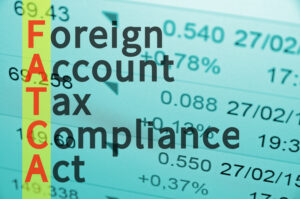
IRS Voluntary Disclosure Program or VDP
IRS Voluntary Disclosure Program - San Diego VDP Attorney

What is the IRS Voluntary Disclosure Program or VDP? What is the safest option for U.S. taxpayers with under-reported or unreported offshore income, accounts, and assets to come into compliance with the IRS? What is an FBAR, and why are you required to file it? What impact does a U.S. taxpayer’s “willful versus non-willful” conduct have upon the decision between the VDP and other options such as the Streamlined Filing Compliance Procedures?
Important Fact: The United States taxes it’s citizens and resident taxpayers on all income worldwide.
U.S. taxpayers are legally required to file an annual tax return and disclose all income worldwide to the IRS and appropriate state tax authorities. All U.S. taxpayers, including foreign nationals who reside in the U.S., who have foreign bank accounts, investments, real property, foreign corporate interests, foreign corporate or business interests, or foreign trusts, must disclose their income from these accounts to the Internal Revenue Service (IRS).
If you are a U.S. taxpayer and fail to report or under-report foreign or domestic income to the IRS, you can be charged with criminal tax evasion and face extensive, substantial legal and financial consequences such as an IRS audit, heavy fines, and penalties. The IRS Voluntary Disclosure Program or VDP is one of the options for U.S. taxpayers to come into compliance with the IRS on unreported or under-reported income and assets.
Disclose Unreported or Under-Reported Offshore Income and Assets through the IRS Voluntary Disclosure Program

Are you concerned about unreported or under-reported offshore income and assets and your IRS or California (or other state) tax returns? What is the best strategy to come into compliance with the IRS and avoid criminal tax evasion exposure as well as draconian unpaid taxes, penalties, and interest?
The tax attorneys of Janathan L. Allen, APC provide insight into the options available to U.S. taxpayers based upon their unique circumstances. One of those options includes the IRS Voluntary Disclosure Program. The VDP is a specific process to disclose unreported or under-reported assets and income, investments, cryptocurrency accounts and activities and offshore business income to the IRS. One of the critical components of the election to make a voluntary disclosure to the IRS involves the intent of the U.S. taxpayer. Was the failure to accurately report income and offshore holdings and accounts a willful act by the taxpayer or the non-willful result of unintentional or inadvertent failure to fully comply with all U.S. tax laws regarding offshore income and assets and associated reporting requirements, including the FBAR? If so, the Streamlined Procedures may be a better option.
One of the critical components of the election to make a voluntary disclosure to the IRS involves the intent of the U.S. taxpayer. Was the failure to accurately report income and offshore holdings and accounts a willful act by the taxpayer or the non-willful result of unintentional or inadvertent failure to fully comply with all U.S. tax laws regarding offshore income and assets and associated reporting requirements, including the FBAR? If so, the Streamlined Procedures may be a better option.
If a U.S. taxpayer has exhibited “willful” behavior in avoiding the required disclosure of offshore income, assets, and investments and the filing of associated forms and FBARs, the Voluntary Disclosure Program can help avoid criminal exposure while bringing the taxpayer into compliance.
Take Action Before You Come to the Attention of the IRS
If the U.S. taxpayer is the subject of a criminal investigation or civil examination (including an IRS audit) or has received notification of the IRS’ intention to begin such an investigation the VDP will not be an available option. Also, the income, assets, or investments in question must have come from “legal” sources. The agency is obviously not interested in helping taxpayers attempting to launder ill-gotten money.
What is a Full, Voluntary Disclosure?
The IRS Voluntary Disclosure Program requires the U.S. taxpayer to fully and voluntarily disclose any and all unreported or under-reported offshore income, assets, investments, and accounts. It also requires taxpayers to pay all back taxes, penalties, interest, and fines.

The truthful, timely compliance of the taxpayer demonstrates a willing effort to come into compliance, determine liabilities and make “good faith arrangements” with the agency to pay all financial amounts owed in a timely manner.
The Foreign Account Tax Compliance Act (FATCA) is designed to increase compliance. It requires foreign banks to identify the accounts of people who may owe tax on the funds in the U.S.
Generally, it is far better to voluntarily report required information about these accounts to the IRS than to have a foreign bank report your information to the IRS.
The Impact of FATCA – There is Nowhere and No Way to Hide
It is hard to overstate the impact of FATCA, the Foreign Account Tax Compliance Act. One of its primary purposes was to add substantial transparency into the activities and financial interests of US taxpayers worldwide. The US government grew tired of “tax havens” and the ability of US taxpayers to avoid paying taxes by hiding income and assets offshore.
Important Fact: FATCA has forever changed the nature of financial activities for all US taxpayers worldwide. The IRS receives electronic disclosures directly from the vast majority of Foreign Financial Institutions (FFIs) disclosing the accounts and assets of US taxpayers, and in many cases, transactional information as well.
FATCA generally states, “If you want to conduct business in or with the United States and any of its territories, you will provide us with information about our taxpayers’ activities. FATCA is a reciprocal agreement, and it is important to understand that information flows both ways.
 FATCA compels Foreign Financial Institutions (FFIs) to provide electronic reporting to their sovereign tax authorities, who share information directly with the IRS about any offshore financial account associated with a US taxpayer. This also applies to foreign business, corporate, and financial entities that are owned (at least in part) by US taxpayers. If an FFI fails to provide information, they face significant financial consequences, including a 30% withholding of any “US Source Payments” to the FFI. This is a “big bat” that more than encourages disclosures sought by the IRS.
FATCA compels Foreign Financial Institutions (FFIs) to provide electronic reporting to their sovereign tax authorities, who share information directly with the IRS about any offshore financial account associated with a US taxpayer. This also applies to foreign business, corporate, and financial entities that are owned (at least in part) by US taxpayers. If an FFI fails to provide information, they face significant financial consequences, including a 30% withholding of any “US Source Payments” to the FFI. This is a “big bat” that more than encourages disclosures sought by the IRS.
The information to be reported includes the Taxpayer Identification Number (TIN) of a US taxpayer that has signatory or controlling interests over any financial account (including cryptocurrency) or “non-US entity.” The information in these transmissions may surprise you. FFIs must report information about offshore accounts, including account numbers, balances, and deposit and withdrawal information. The FFI provides important information, including the name, address, and TIN of an account holder, as well as income-related data concerning interest, dividends, and other forms of income associated with the account.
If the account is an entity, the FFI data will include the name, address, and identification number of the associated entity as well as substantial information on US taxpayers associated with the account (including their TIN or Social Security Number).There is simply nowhere and no way to hide your offshore accounts, income, investments and assets, including cryptocurrency, from the IRS.
Avoid Criminal Tax Exposure and Make a Voluntary Disclosure to the IRS

That is why thousands of US taxpayers have taken advantage of the IRS Voluntary Disclosure Program or VDP rather than having their information reported to the agency by the FFIs, resulting in an investigation, audit, substantial financial consequences, and the genuine risk of imprisonment for criminal tax evasion.
US taxpayers must report all offshore bank accounts, as well as foreign investments and assets to the IRS annually on the FinCEN Form 114 or FBAR. Coming into compliance with FBAR reporting is an immediate and critical issue for US taxpayers with offshore interests.
Failure to report and disclose offshore assets and income exposes the taxpayer to criminal tax evasion charges, as well as an annual penalty of 50% of the associated account balance (at the applicable point in time, and regardless of the present balance within the account) or $100,000, whichever is higher.
The VDP provides an opportunity to disclose these accounts and assets, correct previous FBAR filings and tax returns, pay a relatively modest fee (compared to the penalties for non-compliance), and come into full compliance with IRS regulations. While many taxpayers wish to avoid these costs, the legal and financial penalties for non-compliance are exponentially higher.
Contact an Experienced San Diego IRS VDP and FBAR Compliance Attorney
The IRS OVDP reduces risks, and provides a safe way through the offshore reporting controversies associated with unreported and under-reported income, assets, accounts and investments as well as FBAR reporting requirements.
Ask about the protections of the attorney-client privilege, and why this conversation must take place with a tax attorney and not a CPA or other type of tax preparer.
Contact Janathan L. Allen, APC or call today to schedule a free and substantive consultation with a knowledgeable international tax lawyer at 866-631-3470.
The firm is based in San Diego, California, and we serve clients located in here in the US, Europe, Asia and around the world. We offer the protections of the attorney-client privilege regarding the IRS voluntary disclosure initiative, FBAR and other important matters.
Resources
Downloads
Practices Areas
Contact Us To Learn More About Allen Barron's Services
For more information about the IRS OVDP or to discuss your tax, legal and accounting needs contact Allen Barron or call 866-631-3470 for a free and confidential initial consultation. Learn about the importance of integrated business strategy and coordination across legal, tax and accounting systems.
Offices of Allen Barron, Inc.
Main Office
16745 West Bernardo Drive, Suite 260
San Diego, CA 92127
Phone: 858-304-0947
Phone: 866-631-3470
Fax: 858-376-1410
San Diego Office
5720 Oberlin Drive
San Diego, CA 92121
Phone: 866-631-3470
Fax: 760-741-1410
Las Vegas Office
333 South Sixth Street, Suite 230
Las Vegas, NV 89101
Phone: 702-749-4430
Fax: 702-933-1748
San Diego Office
750 B Street, Suite 2610
San Diego, CA 92101
Phone: 619-702-8356
Fax: 619-923-8356
San Francisco Office
300 Montgomery Street, Suite 410
San Francisco, CA 94101
Phone: 415-481-0475
Fax: 415-762-1539
Phoenix Office
40 North Central Avenue
Phoenix, AZ 85004
Phone: 602-903-7018
Fax: 602-357-1655
